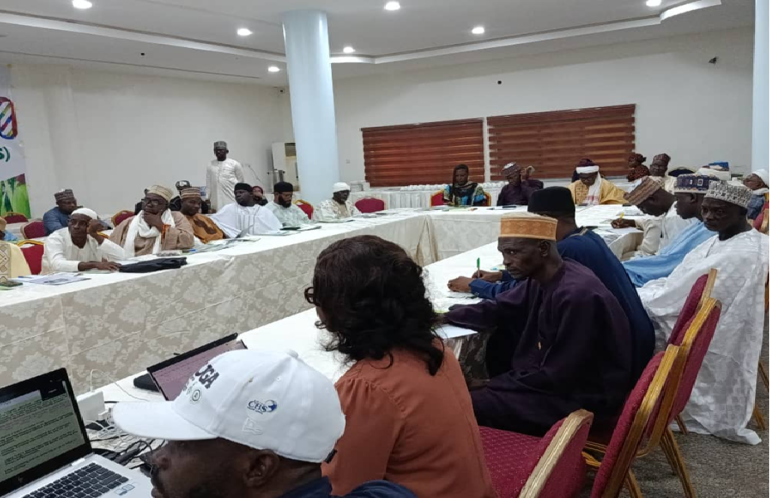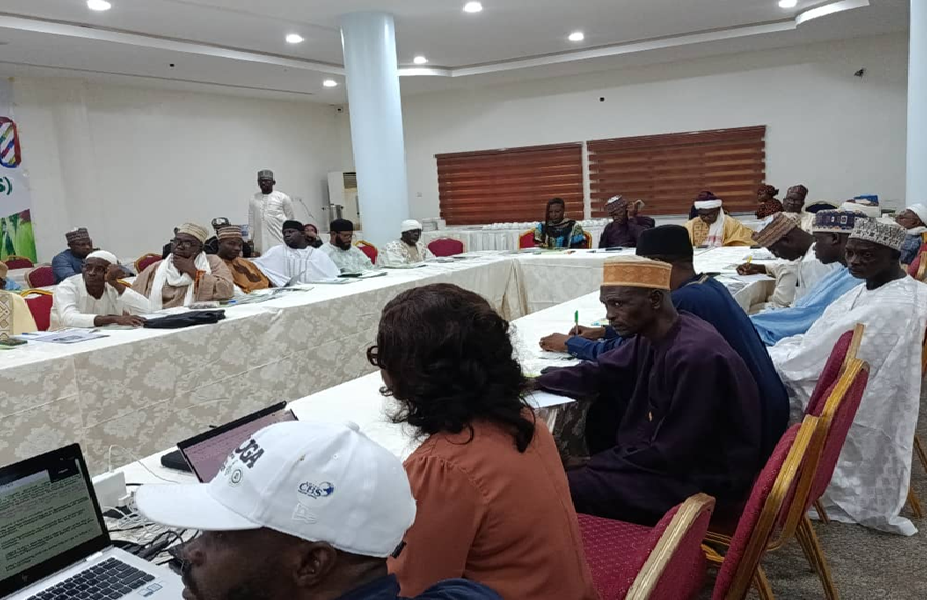Listeners:
Top listeners:
-
play_arrow
104.9FM Best rock music demo
-
play_arrow
Demo Radio Nr.1 For New Music And All The Hits!
-
play_arrow
Demo Radio Techno Top Music Radio
-
 play_arrow
play_arrow
Police Commissioner Launches Weapon and Riot Control Training for FCT Officers Democracy Radio
By: Julian Osamoto
The Director-General and CEO of the National Biotechnology Development Agency, Professor Abdullahi Mustapha, says Nigeria must embrace science and technology to secure its food future and mitigate climate change.
Speaking in Abuja at a sensitisation workshop for the Islamic community on genetically modified crops, Professor Mustapha said the engagement aims to dispel misconceptions and reassure the public on the safety of biotechnology.
He explained that religious and traditional leaders, as well as lawmakers and judicial officers, are being brought into the conversation because of their influence in shaping public opinion.
“We work with legislators, the judiciary, traditional rulers, and faith leaders because they are very close to society and their voices hold credence,” he said.
Professor Mustapha emphasised that genetically modified crops are safe, drought-resistant and capable of boosting yields, reducing hunger, and creating wealth for farmers.
He dismissed fears of foreign control over Nigeria’s food chain, stressing that the seeds are produced locally by indigenous companies. “We are not ceding control to anybody. These seeds are produced by indigenous companies in Nigeria.”
Addressing concerns over seed availability and affordability, Professor Mustapha clarified that the seeds are produced by indigenous companies in Nigeria and not by foreign corporations.
He emphasised that efforts are underway to expand local seed production and make improved varieties more accessible and affordable to farmers across the country.

In her presentation, the Director of Agricultural Biotechnology at the National Biotechnology Development Agency, Dr. Rose Gidado, explained that biotechnology holds the key to global food security and sustainable agriculture.
Dr. Gidado maintained that modern techniques such as genetic engineering and gene editing are being used to improve crops and livestock.
She said gene editing allows scientists to work within a plant’s genetic makeup to remove traits that make crops vulnerable to pests or drought.
According to her, the technology reduces pesticide use, conserves water, and supports environmental sustainability.
Dr. Gidado also stressed that strict regulations and safety assessments guide the development and release of genetically modified products to ensure they are safe for humans, animals, and the environment.
She highlighted additional benefits of biotechnology, including pest and disease resistance, longer shelf life for produce, and higher yields for farmers.
“Nigeria has so far commercialised three crops, cotton, cowpea, and maize, engineered to resist pests and improve productivity, this includes; Crop improvement: Developing crops with resistance to pests, diseases, or environmental stresses”.
“Enhancing livestock productivity, marker-assisted breeding using genetic markers to select for desirable traits in breeding programs and analysing and interpreting large biological datasets”.
Speaking on key contributions of biotech crops to food security, sustainability, and climate change, Dr Gidado highlighted that; Biotech crops have made a significant impact on global food security and environmental sustainability.
“Over the past two decades, genetically modified crops have generated more than 186 billion dollars in farm income worldwide. The technology has also helped conserve biodiversity by saving 183 million hectares of land from ploughing and cultivation.
“Biotech crops are reducing environmental harm. Pesticide use has fallen by 18 percent, while carbon emissions have dropped by the equivalent of taking 16 million cars off the road for a year and improved the livelihoods of up to 17 million small farmers and their families, more than 65 million people globally”. She explained
Dr Gidado added that with strategic investments and collaborative efforts, Nigeria is poised to harness biotechnology’s full potential, driving socio-economic development and improving the quality of life for citizens.
The workshop, organised by the Open Forum on Agricultural Biotechnology, Nigeria chapter, under the auspices of NABDA and the African Agricultural Technology Foundation, (AATF) aims to build trust and awareness among faith leaders on the safety as well as advantages of modern agricultural biotechnology.
Written by: Julian Osamoto
Similar posts
Copyright Democracy Radio -2024



